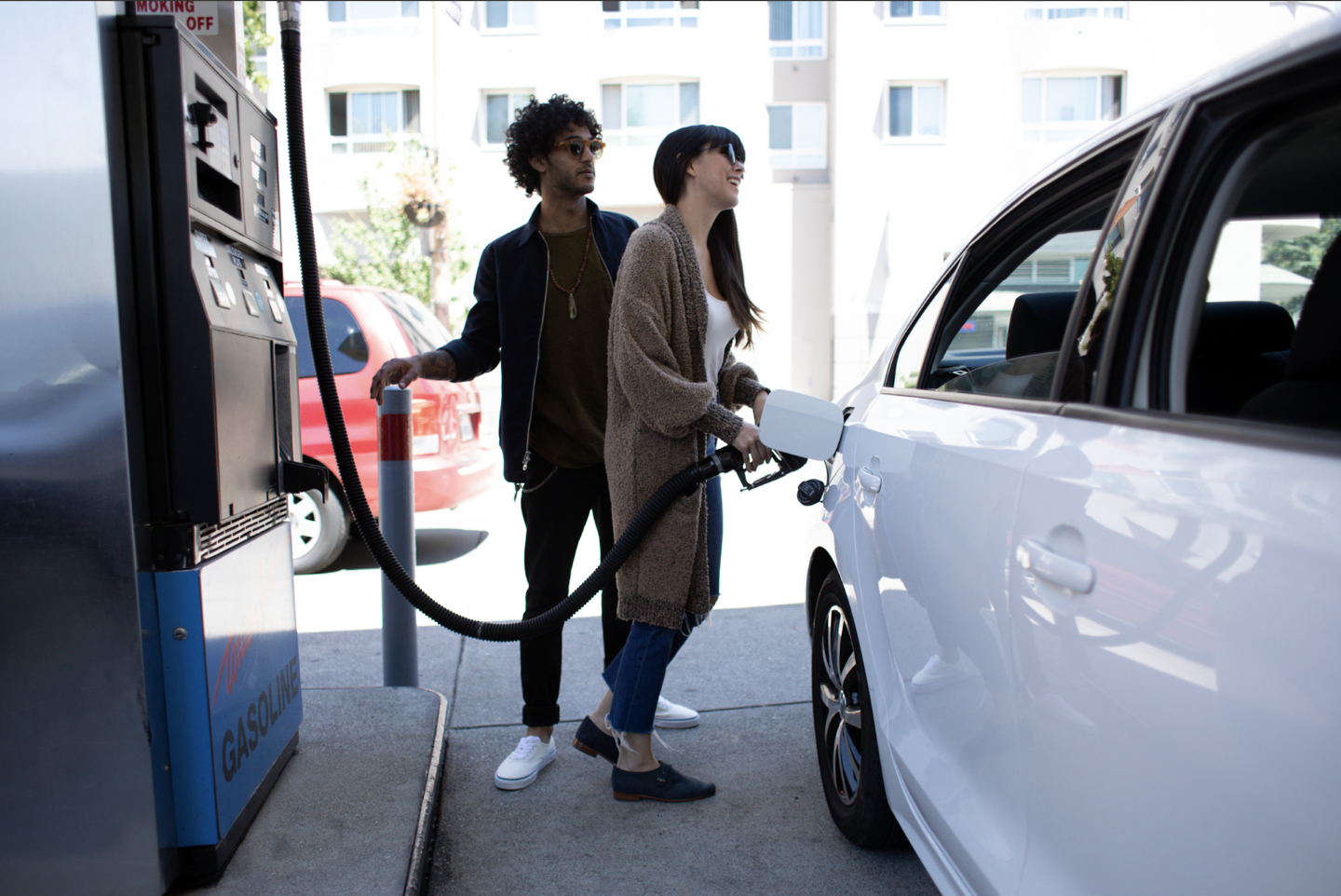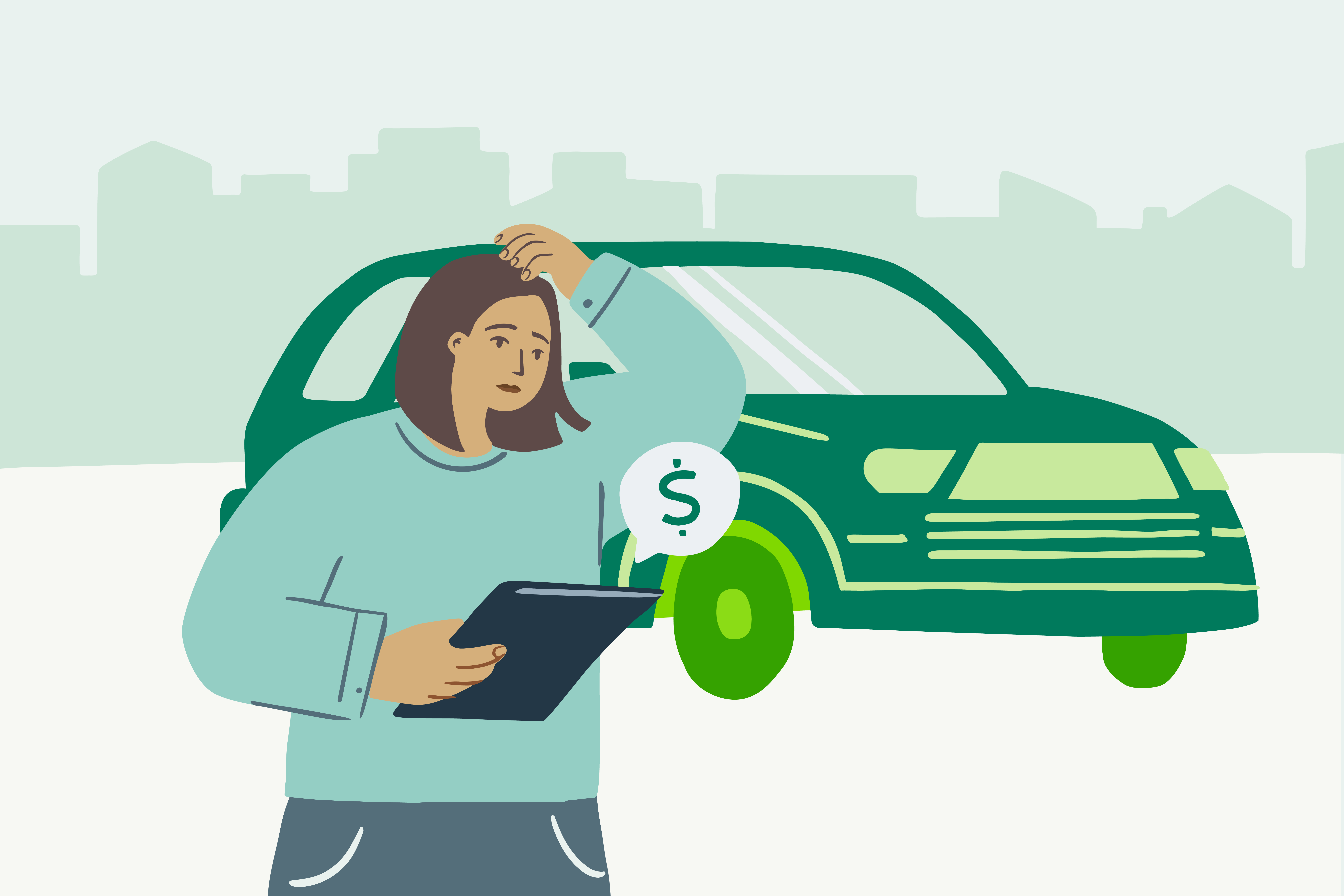What is car insurance fraud? Know what to look for
August 24, 2023
Increased
distracted driving.Profound road rage.
Unpredictable natural disasters.
There are more than enough reasons to understand why it’s important to have an adequate car insurance policy and how scenarios like this can influence your car insurance rate. Another reason for increased rates? Car insurance fraud.
With the number of financial headlines in the news, car insurance fraud headlines are circulating now more than they have in decades. And although it’s a trending topic, for most, car insurance fraud isn’t well-known or understood.
Our HiRoad team is here to address the subject of fraud, the various types and how it may impact your car insurance premiums.
Understanding insurance fraud
What is insurance fraud? It may occur when a consumer, agent, insurance company or adjuster intentionally deceits another for financial gain, according to the National Association of Insurance Commissioners (NAIC). With technology changing rapidly, the opportunities for car insurance fraud seem to grow.
As insurance fraud happens on a regular basis, we have to understand the types of fraud to be aware of as insurance consumers. Let’s go through each.
Auto insurance fraud types
From omitting information on a car insurance application to staging an auto accident, people tend to find interesting ways to dupe their insurance companies or consumers. NAIC outlines the two categories of fraud–hard and soft.
Hard fraud is when a policyholder intentionally destroys their property (aka car) with the intent of collecting on the insurance policy. Though not as common, one scenario of this type of fraud is a staged accident. Another? A planned vehicle theft.
Here are how these two scenarios shake out. In a staged car accident a driver will make a plan to force another driver into a collision where an accomplice (planted witness) will tell police the victim is at fault.
A planned vehicle theft is implied in the name—a car owner will have a partner in crime steal their car and sell, destroy or strip its parts to then file a claim with an insurance company.
Now, soft fraud is much more common and considered a crime of opportunity. It typically happens when a policyholder bends the truth and exaggerates information on a car insurance application or claim to either get a bigger payout or lowered premium.
Common soft fraud schemes are not disclosing all household drivers, falsifying car mileage, lying about the garaging address of the insured vehicle (where the car is generally parked, compared to the address on the policy) and misrepresenting violations or accidents.
Finally, as you think about these two different types of car insurance fraud and what folks may try and do to lower their insurance rate or receive a payout, it’s important to know that you can be a victim of car insurance fraud.
Non-consumer fraud schemes
Dishonest repair shops and car repair scams through airbag replacements are often crimes of opportunities for untrustworthy mechanics and shops. Typically these happen when shops will purposely overstate the accident damage to make money on unneeded repairs. This leaves them with a possible (larger) payout and you with a car that may have faulty or used parts. It can also drive up your car insurance rates.
And although more rare, we want to create some visibility for you to understand there are schemes that happen within insurance companies themselves. Premium diversion occurs when an agent or broker keeps a policyholders’ premium payment instead of sending it to the insurance company.
As a last scheme, it’s important to be aware of insurance company fraud. This is when unlicensed and illegal “insurance” companies and agents defraud customers by collecting premiums for fake policies.
[insert pause]
It’s a lot to take in, we know. With the amount of car insurance fraud possibilities out there, the more obvious question is asking, why, with the advancements in technology, is car insurance fraud trending?
The temptation of insurance fraud
Verisk recently released an interesting study on the number of Americans who think insurance fraud isn’t a crime. We read that those 45 and younger may be envious of those who commit it. Shocking? Keep reading.
“There is a need for consumer education on the harm insurance fraud crimes have on our economy and on every American citizen and family.”
– Matthew Smith, exec. Director of the Coalition Against Insurance Fraud
In the study, over a quarter of those 18-34 are motivated to commit insurance fraud and believe that it’s acceptable to submit an inflated auto damage claim. With younger generations finding justifiable reasons to commit insurance fraud, we wonder what the motivation is to commit it in the first place.
Are they financially stressed?
Do they understand the consequences of fraud?
Is there undue pressure from family and friends?
These questions—among others—leave car insurers to grapple with the influx of car insurance fraud and consequences on the industry as a whole.
Insurance fraud and its consequences
You may hear from time to time about the ripple effect of your actions. You know, “what goes around comes around,” mentality. Well, that same mentality can apply to car insurance fraud.
For insured drivers who commit insurance fraud, the direct consequences, if caught, may result in fines, jail time and possible loss of driving privileges—depending on the fraud, its severity and the state it was committed in.
It could also result in a loss of your existing car insurance and may make it extremely difficult to get car insurance again.
From an insurance industry point-of-view, fraud can be costly. The Federal Bureau of Investigation (FBI) reports that outside of health insurance, insurance fraud costs the industry up to $40B a year—costing U.S. drivers $400 to $700 a year in the increased premiums.
Let’s wrap that up. With an uptick in car insurance fraud, it equals bigger payouts by insurance companies, which can lead to increased insurance premiums for millions of insured drivers.
Protect yourself from insurance fraud
Good news! There are things you can do to avoid the likelihood of becoming a victim of car insurance fraud (cue the applause). Here are some tips from our HiRoad insurance team:
Be honest and transparent with your insurance company. Whether it’s during the quote process of looking for a new car insurance company or giving details related to an auto accident, staying honest and transparent with your insurer will go a long way.
Don’t sign anything you don’t understand. Sounds easy enough right? You’d be surprised how many folks skim the details and documents. Because like a certain mermaid who signed a contract to an evil octopus for a human—your signature is binding. For example, when you apply for insurance, you’ll typically provide an electronic signature. As such, you are actually signing an insurance contract via the application—making it essential for you to read all of the information on the application before signing anything.
Get a second opinion. Because two is better than one, right? Car insurance can be complicated and understanding the ins and outs can be a lot for any person. If you ever suspect fraud, reach out for a second opinion—it couldn’t hurt!
Report suspected fraud. As a serious and potentially criminal offense, car insurance fraud should always be reported. If you feel you are the victim of fraud, talk to your car insurance. If you’ve seen it, report it. You can typically do this through your state’s own department of insurance. You can also call to confirm and verify the insurance company you are interested in doing business with is legit.
Some warning signs of a faux insurance company? First, an agent or broker using intense sales pressure tactics—they may give that, solar summer sale folks who won’t accept a no-vibe. Second, the premiums from one company may be around 20 percent lower than other companies' similar coverage.
Lastly, a company’s contact info isn’t readily available or is tough to track down. Here’s a heads up: it should always be located at the bottom of a website or on its own website page.
With these tips and warning signs in mind, you may be able to more easily detect and prevent car insurance fraud from happening to you or be able to report it.
Emerging technology and solutions to prevent fraud
Technology, with its rapid progression, has perks and pitfalls. Yes, it may be opening the door for folks to commit fraud more easily but it may actually play a significant role in combating fraud. How? With advanced data analytics and the analysis of imagery and video.
Insurers who utilize data analysis tools may be able to quickly identify patterns and irregularities that indicate potential fraud. This data can include driving behavior or claim history to better detect activities or claims that are suspicious.
Lastly, because smartphones and dashcams are becoming popular means for drivers to capture visual evidence, insurance companies leverage technologies that analyze the authenticity of video or images submitted by drivers trying to commit fraud. Certain capabilities might be able to detect alterations or inconsistencies and determine if an accident was staged.
Usage-based insurance (UBI) that utilizes telematics offers significant benefits for younger drivers and plays a big role in combating insurance fraud. These insurance models use devices or smartphone tech to collect data related to driving behavior.
These tools and technologies allow insurance companies (like HiRoad) to identify and combat fraud, but also empower young drivers to take control of their premiums through responsible driving.
Embracing telematics and defeating insurance fraud
Insurance fraud does pose a real threat to not only car insurance companies but to honest policyholders, like you. Help protect yourself from falling victim to schemes by becoming aware of the types of insurance fraud and the red flags.
Make mindful choices about your submitted claims and as a community of responsible drivers, we have the opportunity to combat insurance fraud and help create a safer insurance future. Take the first step to potentially reduce your risk of insurance fraud and secure your journey by looking into telematics-based insurance options. Together, we can make a difference on roads and contribute to a fraud-free future.
The information in this article was obtained from various sources not associated with HiRoad®. While we believe it to be reliable and accurate, we do not warrant the accuracy or reliability of the information. HiRoad is not responsible for, and does not endorse or approve, either implicitly or explicitly, the content of any third party sites that might be hyperlinked from this page. The information is not intended to replace manuals, instructions or information provided by a manufacturer or the advice of a qualified professional, or to affect coverage under any applicable insurance policy. These suggestions are not a complete list of every loss control measure. HiRoad makes no guarantees of results from use of this information.Stay on the path
Get HiRoad in your inbox
Share your email to get the latest about our community of mindful drivers.



